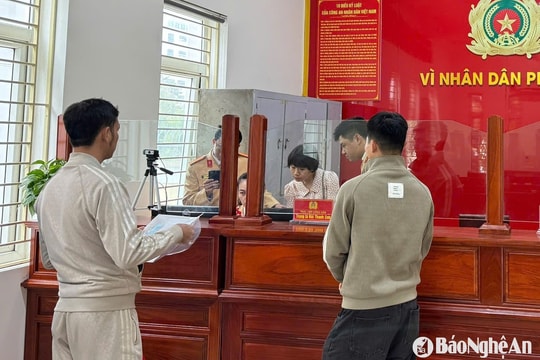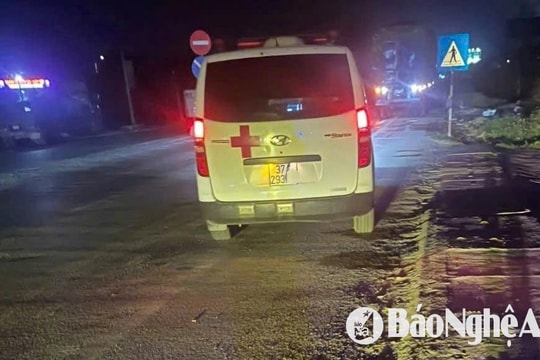From now on, traffic police are not allowed to fine on the spot for these violations, people need to know
Traffic police cannot impose fines and collect money directly on the spot for violations recorded by traffic cameras, surveillance devices or other professional support tools.
Traffic police are not allowed to fine on the spot for these violations.
According to Article 57 of the Law on Handling of Administrative Violations, if the violation does not fall under the cases that are allowed to be punished without having to make a record, the competent authority mustmake a record and complete the penalty file.
One pointextremely importantWhat many people do not understand is the regulation on handling violations detected through technical equipment. When a violation is detected throughtechnical equipment, recording devices or other professional measures, the making of minutes becomes mandatory.
This means traffic policecannot impose fines and collect money directly on the spotfor violations recorded by traffic cameras, surveillance devices or other professional support tools. This regulation is to ensure thetransparent and legalin administrative sanctions
The handling must comply with the correct procedures and legal regulations to ensure the legitimate rights of violators and the accuracy of the handling.
Understanding of these regulations ispractical meaningfor all traffic participants. When people know their rights and obligations, they canprotect legitimate rightsin communication situations with traffic police.

Traffic police impose fines on the spot without making a record with a fine of no more than 500,000 VND
Article 56 of the Law on Handling of Administrative Violations has established clear standards for handling administrative violations without having to make a record.
Accordingly, this form of punishment is only applied in cases of warning or fine with a maximum fine of VND 250,000 for individuals and VND 500,000 for organizations.
The prerequisite for applying this form of penalty is that the person with the authority to impose the penalty must issue a decision to impose an administrative penalty on the spot. However, this regulation has important exceptions that traffic participants need to be aware of to protect their legitimate rights.
In cases where on-the-spot fines are allowed, the penalty decision must contain all the required information. Specifically, the decision must clearly state the time of the decision, information about the violating individual or organization, the specific act committed, and the location of the violation.
In addition, the decision must be accompanied by necessary evidence, information of the decision maker and legal basis. In case of monetary fines, the fine must also be clearly stated in the decision to ensure accuracy and transparency.






